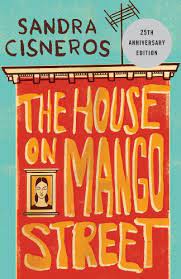
In Gregory Orr’s 2002 collection of poetry-related essays, Poetry as Survival, he brings up a D. H. Lawrence poem I had not read: “Song of a Man Who Has Come Through.” Orr quotes the entire poem (see below) but is chiefly preoccupied with its last lines.
Let’s read it together first:
“Song of a Man Who Has Come Through”
by D. H. Lawrence
Not I, not I, but the wind that blows through me!
A fine wind is blowing the new direction of Time.
If only I let it bear me, carry me, if only it carry me!
If only I am sensitive, subtle, oh, delicate, a winged gift!
If only, most lovely of all, I yield myself and am borrowed
By the fine, fine wind that takes its course through the chaos of the
world
Like a fine, an exquisite chisel, a wedge-blade inserted;
If only I am keen and hard like the sheer tip of a wedge
Driven by invisible blows,
The rock will split, we shall come at the wonder, we shall find the
Hesperides.
Oh, for the wonder that bubbles into my soul,
I would be a good fountain, a good well-head,
Would blur no whisper, spoil no expression.
What is the knocking?
What is the knocking at the door in the night?
It is somebody wants to do us harm.
No, no, it is the three strange angels.
Admit them, admit them.
First off, you can tell this was written in 1914. Only then could a poet get away with such gratuitous exclamations (!!!). Or with the now-rare “Oh.” Or with side-by-side repetitions like “fine, fine.”
A closer look at some of the word choice brings us to some interesting themes. In L5-L7 we have “I yield myself and am borrowed / By the fine, fine wind that takes its course through the chaos of the / world.”
It is as if the world we construct (most ostensibly in the shape of houses we hide in) is too safe, as if we must yield ourselves to a wild wind that will bear us out into the chaos that is the world. Only then will we be rewarded: “The rock will split, we shall come at the wonder, we shall find the / Hesperides.”
Do you have the right stuff? Clearly Lawrence did, as evidenced by the second stanza where we find “wonder that bubbles in my soul.” Necessary, don’t you think, before jumping out the door and pulling the string for your parachute?
Then, the final two stanzas. The ones that fascinate Orr. It brings to mind “The Highwayman” with all that knocking. It is as if our speaker, despite having “the right stuff” and the perfect soul for adventure, second guesses himself when hearing insistent knocking.
Fear, after all, sounds like so: “It is somebody wants to do us harm.”
But therein lies the trap. After a while, we kid ourselves into thinking everything intends to do us harm. You could call it paranoia, or you could call it many less damning things, like the well-worn expression “comfort zone,” but they’re all part of the same constrictive family.
Then, the end that Orr so delights in: “No, no, it is the three strange angels. / Admit them, admit them.”
Who are these “three strange angels,” anyway? It’s one of those magical situations where the poet is better off not explaining. That way, the angels become many things to many readers.
Orr comments: “… in the poem’s final two-line stanza, it’s as if another voice, or perhaps the voice of some other part of him, answers his fear….”
He goes on to point out the magical properties of the number three. Religion, mythology, and stories from ancient times are all rife with examples of things that come in magical troikas: the trinity, the Graces, the Magi, etc.
The word angel, Orr reminds up, comes from the Greek for “messenger.” He marvels at the strength of an adjective (as a part of speech, so seldom lauded in poetry!). Without the word “strange,” the final stanza would wither and lose all effectiveness.
More Orr: “But it isn’t just the identity of the figures that makes the poem’s ending mysterious. We also note that the same someone who knows who is outside the door also tells us emphatically what we are to do in response to the knocking: ‘Admit them, admit them.'”
“We must,” Orr continues, “…become vulnerable to what is out there (or inside us). Not in order to be destroyed or overwhelmed by it, but as part of a strategy for dealing with it and surviving it. Lyric poetry tells us that it is precisely by letting in disorder that we will gain access to poetry’s ability to help us survive. It is the initial act of surrendering to disorder that permits the ordering powers of the imagination to assert themselves.”
Chaos. Disorder. Dionysus. As Nietzsche would put it, time to set aside our inner Apollos and let the messiness in. Then, as the Bible would put it, time to wrestle with our angels. That’s called writing poetry. Struggle. Bending disorder into submission, if temporarily, if but for one poem until next time.
Do you have what it takes to “come through”?






